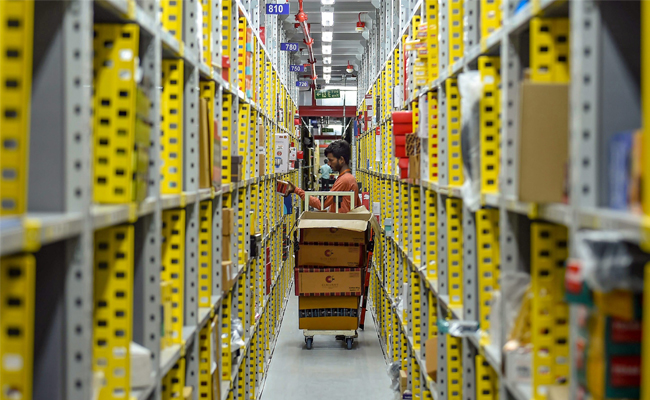New Delhi, Jul 9: An RSS-linked magazine has stressed the need to introduce a comprehensive national population control policy, pointing to a "demographic imbalance" emerging in certain areas of the country with a "significant Muslim population growth".
An editorial published in the latest edition of Organiser Weekly also flagged concerns over "regional imbalances" in terms of population and pitched for policy intervention, saying states from the west and south were doing "relatively better" in implementing population control measures but they "fear losing a few seats" in Parliament if the base population was changed after the Census.
"Despite stabilising the population at the national level, it is not the same in all religions and regions. There is a significant Muslim population growth in certain areas, especially bordering districts," the editorial noted.
Frontier states such as West Bengal, Bihar, Assam and Uttarakhand are witnessing "unnatural" population growth due to "illegal migration" across the borders, it added.
"In a democracy, when numbers are critical regarding representation and demography decides the destiny, we must be even more cautious of this trend," the editorial said.
"Politicians like Rahul Gandhi can afford to insult Hindu sentiments now and then. (West Bengal Chief Minister) Mamata (Banerjee) can play the blatant Muslim card even to accept the atrocities on women by the Islamists, and Dravidian parties can take pride in abusing Sanatan Dharma only because of their confidence in the consolidation of the so-called minority vote bank developed with the population imbalance," it charged.
"Learning from the horrors of the Partition and what is happening with the politically correct but socially and culturally incorrect migration from West Asian and African countries, we have to address this issue urgently, as pointed out by various Rashtriya Swayamsevak Sangh (RSS) resolutions and judicial pronouncements," it added.
The editorial further noted that regional imbalance was another "critical dimension" that would impact the delimitation process of parliamentary constituencies in the future.
"The states from the west and south are doing relatively better regarding population control measures and, therefore, fear losing a few seats in Parliament if the base population is changed after the Census," it said.
"Hence, we need policies to ensure that population growth does not disproportionately impact any single religious community or region, which can lead to socio-economic disparities and political conflicts," it said.
"Instead of getting carried away by the external agenda pushed through international organisations, research foundations and consultancy agencies, we should strive for a comprehensive national population policy, keeping in view the availability of resources in the country, future needs and the problem of demographic imbalance and apply the same uniformly to all," it added.
The editorial noted that the 1974 Henry Kissinger Report -- "Implications of Worldwide Population Growth for US Security and Overseas Interests" -- talked about pushing for various means to control the population of countries like Bharat "in all possible ways", much before the United Nations Development Programme designated July 11 as World Population Day in 1989, after the global population reached the five-billion mark in 1987.
It said that though the purpose of commemorating the day was to emphasise the urgency and importance of population issues and draw attention to the rapid growth of the global population and the adversities associated with it, there were different national connotations to the debate.
For instance, countries such as Japan have been facing a negative growth rate for decades while China had to reverse the authoritative population control policy after implementing it for decades, the editorial said.
"That makes population issues complex and nation-specific, with the core question of whether the population is a burden or an asset for the country. While discussing the population question in the Bharatiya context, we need a national discussion leading towards a comprehensive population policy," the editorial said.
Let the Truth be known. If you read VB and like VB, please be a VB Supporter and Help us deliver the Truth to one and all.
New Delhi (PTI): The Supreme Court on Monday transferred to Karnataka High Court petitions of Amazon and Flipkart, challenging a Competition Commission of India order for a probe into the e-commerce giants for alleged malpractices.
A bench of Justice Abhay S Oka and Justice Ujjal Bhuyan said if pleadings in some of the transferred petitions were not completed, the judge seized of the matter would grant reasonable time to complete the pleadings.
"It will be appropriate if all the petitions which are the subject matter of this transfer petition are transferred for hearing to the High Court of Karnataka," the bench said.
During the hearing, Attorney General R Venkataramani informed the apex court that, after filing of the present petition by fair trade regulator the Competition Commission of India (CCI), five pleas had been filed in different high courts.
The top court directed that these petitions be transferred to the High Court of Karnataka.
"If similar petitions are hereafter instituted in any other high court, the same shall be also covered by this order," the bench said.
The apex court had earlier issued a notice on the plea filed by the CCI, which sought the transfer of the petitions filed by the e-commerce giants from the high courts to the top court or Delhi High Court.
In its plea before the top court, the CCI sought directions to transfer either to the Supreme Court or Delhi High Court the cases pending before the high courts of Allahabad, Madras, Telangana, Punjab and Haryana, Delhi, and Karnataka.
The fair trade regulator ordered the probe into Flipkart and Amazon following allegations of malpractices, including deep discounting and tie-ups with preferred sellers on their platforms.
The CCI's probe order came after a complaint by the Delhi Vyapar Mahasang, whose members comprise many traders of smartphones and related accessories.
Amazon and Flipkart filed separate petitions in various high courts, challenging the CCI's probe order.





